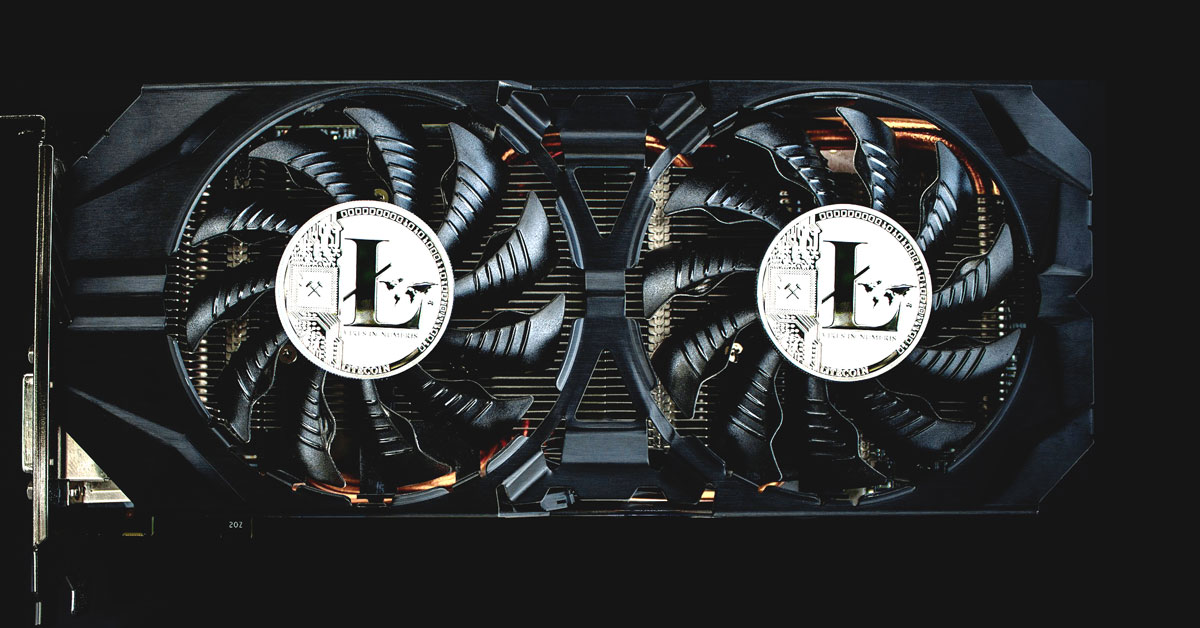You probably have heard the term “blockchain,” even if you don’t know exactly what it means. It has become a worldwide craze, prompting large investors to pour money into any company or project that is even tangentially related to the technology. Just the mention of the word alone is enough to get investors listening.
It may seem that ordinary investors are being left out. After all, how many people can invest millions in the latest startup?
Of course, almost anyone can invest a small amount of money in Bitcoins or in other altcoins, which do utilize blockchain technology. But there are many good reasons why an investor may want to avoid owning cryptocurrencies, such as its wild price fluctuations and the technical know-how required to both purchase cryptocurrencies and safely secure them.
Fortunately, there is a way you can make a blockchain investment without owning cryptocurrencies or even a blockchain stock. You can do this through buying something called a blockchain exchange-traded fund (ETF).
What Is Blockchain?


While the term “blockchain” sounds like one of those impenetrable technical terms that only someone who graduated from MIT can understand, it is actually not that complicated. It is simply a digital ledger of transactions that is distributed over many computers that no individual or entity can control.
What makes this technology so appealing and groundbreaking is that it powers applications that have no central authority or third-party authentication, which have publicly-accessible data that no one can manipulate in any way.
Satoshi Nakamoto, who was the creator of Bitcoin, also created blockchain technology. This technology was developed specifically for Bitcoin and is the foundation of every cryptocurrency. But the applications of blockchain go far beyond cryptocurrencies. Just about any process that can benefit from automation, security and transparency can benefit from using the technology. Among existing non-cryptocurrency-related applications of blockchain technology include:
1. The processing and settlement of trades
2. The processing of insurance claims
3. Supply chain sensors
4. Peer-to-peer lending
5. Government registries
What’s more, future applications of blockchain technology are literally endless.
What Is An ETF?


Before you can understand what a blockchain ETF is, you must first understand what an ETF is in general and why it is so useful.
Exchange-traded funds are collections of securities that track a certain set of assets that underlie the fund’s purpose. For example, the SPDR S&P 500 ETF tracks the S&P 500 index by investing in companies that are included in the index. ETFs can contain many different types of investments, such as stocks and bonds, as well as a mixture of these types. They are also considered securities, which you can buy or sell on an exchange.
While you can buy and sell ETFs much like you would buy and sell stocks, you do not own the underlying assets. What this means for investors is lower broker commissions and lower expense ratios, and hence higher profits. For these reasons, the popularity of ETFs has soared in recent years. In 2008, $700 billion was invested in ETFs throughout the world. But, by 2018, this number had risen to $5.1 trillion.
The Difference Between Blockchain ETFs And Cryptocurrency ETFs
You should be careful not to confuse a blockchain ETF with a cryptocurrency ETF, as they are quite different. A blockchain ETF tracks the stock prices of companies that are engaged in solutions relating to blockchain technology. This lets you profit from the best blockchain stocks without you having to own them. On the other hand, a cryptocurrency ETF allows investors to track the price of cryptocurrencies without them having to go through the hassle of buying the currencies and safely storing them.
While a number of investment companies are hoping to soon offer cryptocurrency ETFs, specifically Bitcoin ETFs, so far the SEC has yet to approve any of them for sale. Nor have they given a clear indication of when they might approve them. But you can buy any number of blockchain ETFs right now.
How Blockchain ETFs Work
There are two types of blockchain ETFs: those that have passive portfolio management and those that have active portfolio management. ETFs with passive portfolio management, which is the more common type, generally invest in stocks that are included in well-established indexes. On the other hand, ETFs with active portfolio management attempt to outperform the market. The latter approach leads to higher management fees, but it can also lead to higher profits if the fund is well managed.
Both types of blockchain ETFs invest in similar types of companies, and rarely are these companies exclusively devoted to developing blockchain-based solutions. This is because few such public companies currently exist. Instead, they invest in companies that have developed (or are developing) blockchain-based solutions. These are the companies that stand to benefit from the technology’s further advancement and adoption.
The development of blockchain technology is a global phenomenon. For this reason, many blockchain ETFs invest in companies across the world. Though most of their investments at the moment are in North American-based companies.
The Best Blockchain ETFs


Here are 5 of the best blockchain ETFs you can invest in (in no particular order):
1. Innovation Shares NextGen Protocol ETF (NYSEARCA: KOIN)
Established in January of 2018, this blockchain ETF tracks the Innovation Labs Blockchain Innovators Index. 80% of more than $10 million of fund assets are invested in securities that underlie the index, which follows the performance of companies that are engaged in various uses of blockchain technology. Its holdings include some of the top blockchain stocks, such as:
- Taiwan Semiconductor Manufacturing Co Ltd. (NYSE: TSM)
- NVIDIA Corp. (NASDAQ: NVDA)
- International Business Machines (NYSE: IBM)
The fund has an annual management fee of 0.65%, which is slightly above the industry average of 0.55%. In terms of performance, as of July 24, 2019, the fund had a 3-month return of 4.17% and a year-to-date return of 28.51%.
2. Reality Shares Nasdaq NexGen Economy ETF (NASDAQ: BLCN)
Like the Innovation Shares NextGen Protocol ETF, this blockchain ETF was established in January of 2018. It tracks the Reality Shares NASDAQ Blockchain Economy Index. The fund has more than $72 million in assets, with most of this invested in the blockchain stocks that make up the index. The companies they invest in either develop, research or make use of blockchain technology in some manner. The fund’s holdings include companies such as:
- Advanced Micro Devices, Inc. (NASDAQ: AMD)
- Accenture (NYSE: ACN)
- Microsoft Corporation (NASDAQ: MSFT)
The fund has an annual management fee of 0.68%. In terms of performance, as of June 24, 2019, the fund had a 3-month return of 2.47% and a year-to-date return of 24.90%.
3. Amplify Transformational Data Sharing ETF (NYSEARCA: BLOK)
This blockchain ETF is a few years older than the two ETFs listed above, having been established in January of 2016. Unlike those two funds, which have passive portfolio management, this fund has active portfolio management, so it has a higher management fee.
Included among this fund’s top holdings are:
- GMO Internet, Inc. (OTC: GMOYF)
- Digital Garage, Inc. (OTC: DLGEF)
- Square, Inc. A (NYSE: SQ)
The ETF has nearly $112 million in assets, making it the largest blockchain ETF, and it has a management fee of 0.90%. In terms of performance, as of June 24, 2019, the fund had a 3-month return of 4.76% and a year-to-date return of 27.83%.
4. First Trust Indxx Innovative Transaction & Process ETF (NASDAQ: LEGR)
This is another passive-portfolio-managed blockchain ETF that began operations in January of 2018. It invests 90% of the more than $40 million in assets it controls in companies listed within the Indxx Blockchain Index, which tracks companies that develop blockchain-based solutions. Its portfolio includes the following companies:
- Wirecard AG (OTC: WCAGY)
- Micron Technology Inc. (NASDAQ: MU)
- Texas Instruments Inc. (NASDAQ: TXN)
The ETF has a management fee of 0.65%. In terms of performance, as of June 24, 2019, the fund had a 3-month return of 2.05% and a year-to-date return of 21.87%.
5. Goldman Sachs Motif Finance Reimagined ETF (NYSEARCA: GFIN)
This ETF, launched by one of the world’s largest financial services companies, began operations in January of 2019. It invests its $10 million of assets in line with the Motif Finance Reimagined Index. This index tracks not only companies involved in blockchain technology but also those engaged in other forms of what is commonly referred to as “fintech,” which means using advanced technology to support and enable various banking and financial services.
The fund’s portfolio includes:
- Mastercard Inc. (NYSE: MA)
- Visa Inc. (NYSE: V)
- PayPal Holdings Inc. (NASDAQ: PYPL)
The ETF’s management fee is 0.50%, which is the smallest of the blockchain ETFs listed here. In terms of performance, as of June 24, 2019, the fund had a 3-month return of 7.53%. However, because this ETF is so new, it is not yet possible to calculate a year-to-date return.



























